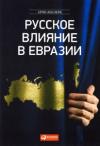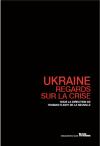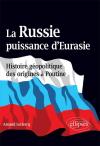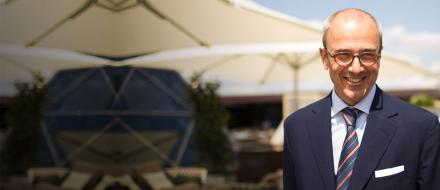Sustainability 2021: a vital shift in the Middle East
With the pandemic forcing investors to reassess their priorities, Lombard Odier’s Arnaud Leclercq and Christopher Kaminker explore how sustainability trends are accelerating in the region and worldwide

With the coronavirus pandemic dominating headlines over the past year from a public health and economic standpoint, it may feel as if another, slower-burning but larger crisis has taken a backseat from a media perspective: climate change.
In January, Blair Sheppard, PwC’s global leader for strategy and leadership, told Arabian Business that, because of wildfires in South East Asia, Australia, California and Brazil, the world will have lost much of its “lungs” within a decade. “If we do not solve this problem in the next 10 years, it will be virtually impossible to solve.”
While sustainability has long been a watchword for high-net-worth investors, the events of 2020 have accelerated pre-existing trends, says Arnaud Leclercq, Partner Holding Privé and Head of New Markets at Swiss private bank Lombard Odier.
“The pandemic has been a crisis moment that has led investors globally to rethink how they deploy their capital.”
He adds that there has been an evolution in investor mindsets, with a belief that sustainable investing will be crucial to unlock future returns.
“Investor demand is shifting – from backward-looking, metrics-based environmental, social and governance (ESG) criteria on business practices, towards a more sophisticated forward-looking approach that covers the full sustainability of business models.”
This isn’t only an issue for investors, he says, but a prerequisite for every company and sector, transforming the operation of entire industries.
Christopher Kaminker, Head of Sustainable Investment Research, Strategy and Stewardship at Lombard Odier, explains that the emerging circular, lean, inclusive and clean (CLICTM) economic model (see infographic) represents a $5.5-trillion opportunity per year. “It is our duty, on behalf of our clients, to find ways to tap into this massive investment opportunity.
“We believe sustainable investing is the only way to generate solid long-term returns.”
Forward-looking perspectives
With a huge cost attached to climate-related natural disasters – Leclercq says Hurricane Katrina alone cost close to $180bn and last year’s Australian bush fires more than $60bn – regulators want better disclosure of risks, while consumers and investors are demanding better protection.
“There is rising demand for conventional forms of insurance, as well as new products such as weather derivatives, catastrophe bonds and new assets such as green buildings,” explains Leclercq.
He also highlights technological innovation and falling costs for satellite imagery helping financial services companies better monitor and integrate these risks in their decision-making and product offering.
“Today, there are more than a dozen disclosure frameworks and regulatory standards related to climate risks. Market, regulatory, consumer and investor forces are creating a powerful feedback loop that is driving demand for sustainable solutions.” It’s a vast investment opportunity – PwC estimates investments of around $440 billion a year are needed just to protect nature alone. “Current investment levels are just one eighth of that total.”
A regional agenda
For the Arab world, where Islamic investments are already well established, socially-responsible and sustainable opportunities are a natural fit, believes Leclercq.
“Sustainability has climbed to the top of policy agendas in the region – driven by rising populations, growing consumption and swift development, an arid climate, a lack of water and arable land and a need to shift economies away from oil dependence.
“By looking towards sustainable financing, the GCC can seek to become a global hub for new technologies focused on the green economy and enhance the region’s competitiveness, to support long-term economic growth, whilst simultaneously protecting the environment.”
He points to Saudi Arabia’s Vision 2030, which includes plans to increase its renewable energy supply by 30 percent – partly through building the region’s largest wind farm – as an example of GCC policymakers’ focus on sustainability.
The UAE’s Vision 2021, meanwhile, aims to build up a sustainable infrastructure and environment. Expo 2020 Dubai’s core theme is sustainability, while Masdar City aims to be one of the world’s most low-carbon developments, and Abu Dhabi Sustainability Week – where Lombard Odier Senior Managing Partner Patrick Odier was recently a keynote speaker – is a globally renowned event.
“The Middle East’s challenges fit well with some of the areas where we see significant growth opportunities: sustainable mobility, buildings, energy supply and agriculture; smart food chains and the preservation of natural capital; resource efficiency; and the shift to a sharing economy.”
Leclercq says the integration of Shariah-compliant sustainable investing is still in its early stages in the region. Still, there are promising moves being made by the likes of Saudi Arabia’s Sedco Capital, which Lombard Odier has worked with for many years, and which is ahead of the curve in this regard.
“Sedco Capital pioneered a proprietary approach it calls Prudent Ethical Investment (PEI), which integrates Shariah-compliant and responsible investment principles. PEI combines traditional Shariah exclusions and balance sheet screening with assessment of ESG criteria. It is an approach that is gaining traction among investors, and which delivers distinct risk/return dynamics.
“At the same time, new investment benchmarks are appearing, to inform and educate investors on Shariah-compliant and sustainable opportunities.” These include the launch of the S&P/Hawkamah UAE ESG Index in April 2020, which measures the performance of the top 20 stocks in the UAE based on almost 200 ESG factors.

Sustainable investment innovation
There’s a reason Lombard Odier is so heavily invested in the green economy. According to the World Economic Forum, over half of global GDP depends on natural capital. “This natural capital is being depleted faster than it can regenerate,” says Kaminker, who says 2021 will be a pivotal year for both nature-related regulations and for the powerful market forces that are allowing companies to harness the power of natural solutions. He points to the UN biodiversity conference taking place in China that he believes could create a “Paris Agreement for biodiversity”.
In November 2020, the Prince of Wales inspired the development of Lombard Odier’s Natural Capital Investment Strategy, which aims to identify profitable companies poised to take advantage of four unstoppable growth opportunities: the circular bio-economy, resource efficiency, outcome-orientated consumption and zero waste.
“This is a first-of-its-kind solution: a global equity strategy investing in businesses focused on harnessing and preserving natural capital. This can include firms improving resource efficiency, cutting waste, regenerating forests and oceans, and removing CO2 from the atmosphere.”
For Lombard Odier, sustainability isn’t a fad. Geneva’s oldest private bank can trace its progressive roots back to the 19th century, when partner Alexandre Lombard was a driving force behind abolishing Sunday labour in Switzerland and urging clients not to invest in companies in the American South that were reliant on slave labour.

Lombard Odier was one of the first institutions to practice socially responsible investing and shareholder activism, having incorporated ESG criteria into its investments since 1997 and signed the UN Principles for Responsible Investment in 2007. In 2019, it also became the first global wealth and asset manager to gain B Corp certification, one of the world’s leading corporate sustainability ratings.
“We have invested heavily in developing our sustainable investment offering,” says Kaminker. “Our methodology is recognised by the Financial Stability Board’s Taskforce on Climate-Related Financial Disclosures.”
The bank’s proprietary ESG analysis goes beyond measuring business practices to take a holistic view of their entire model. “Business models, and their alignment with key sustainability challenges, are key drivers of future performance,” explains Kaminker.
“To give you a practical example, the carbon footprint of a company tells you something about its business practices, how big a challenge the climate transition may be to that company and how big an impact that company has had on climate change historically.”
While he says this is valuable information, it offers little on its own from an investment perspective. “Investors want to know what the emissions are going to be in 5 or 10 years’ time and whether that business model will be profitable as the climate transition unfolds.”
That is why Kaminker’s team developed the Lombard Odier Portfolio Temperature Alignment (LOPTA) tool – a forward-looking metric that helps investors see how their investment are aligned with the goals of the Paris Agreement, to limit global warming to 1.5-2°C.
Why investors care
Evidence published in 2020 shows sustainable investment strategies in a positive light when it comes to long-term gains, says Leclercq. “A study of 745 sustainable funds published last year by Morningstar concluded that the majority of these strategies had outperformed conventional funds over one, three, five and 10 years.”
He points to a material rise in client demand for sustainable solutions over the past year. “This is being reflected in investment issuance, including in the Middle East – with a strong rise in green and SRI (socially responsible investing) sukuk issuance seen particularly in the UAE in 2019 and 2020.”
From Lombard Odier’s point of view, clients want to integrate sustainability into their portfolios differently. “We offer portfolios that simply exclude certain sectors or sub-sectors, those that integrate our proprietary sustainability analysis and portfolios where sustainability is the core source of alpha, or outperformance.” The bank offers personalised sustainability portfolios built according to individual client specifications, which may include dedicated biodiversity or climate transition solutions, for example.
“In short, our fiduciary duty is to invest sustainably, in order to generate the best returns for our clients.”
Sustainability and the pandemic
Arnaud Leclercq, Partner Holding Privé and Head of New Markets at Swiss private bank Lombard Odier

To a greater or lesser extent, governments around the world have been seizing the unprecedented opportunity to ‘build back better’ in response to the economic damage inflicted by the pandemic. The climate emergency is like the Covid-19 emergency, just in slow motion and much graver.
Both involve market failures, externalities, international cooperation, complex science, questions of system resilience, political leadership and action that hinges on public support. Decisive state interventions are also required to stabilise the climate, by tipping energy and industrial systems towards newer, cleaner, and ultimately cheaper modes of production that become impossible to outcompete.
The recovery is also an opportunity to address global environmental crises and challenges, including climate change, air and water pollution, biodiversity loss, ocean degradation, and inefficient resource use.
The crisis has reminded us of the crucial link between the environment and human health, as well as the urgency of tackling environmental problems.
The pandemic has also prompted debate on other areas that have, to date, received less attention. Air pollution is an example. World Bank data from 2020 revealed the MENA region has the highest air pollution levels globally after South Asia, and most of its urban populations live with air pollution that surpasses World Health Organisation thresholds for what is considered healthy air by four to five times.
Many cities also have issues with managing plastic waste, which have been exacerbated by a high volume of single-use plastic waste stemming from the pandemic.








